Opera North has launched a ‘Green Season’, which means (among other things) that the sets and costumes for its new Falstaff are recycled. On one level, that’s nothing new: this eternally underfunded company has been performing miracles of sustainability for years now, and there’s usually at least one production each season that looks like it’s been cobbled together from the lumber room. A few seasons back, when ON rebooted their ‘little greats’ season of one-act operas, they mixed ’n’ matched sets between wildly different operas, with cheerful abandon.
Still, it’s a perfectly laudable aim, even if it requires some Olympic-level mental gymnastics regarding the content of the operas themselves. The director, Olivia Fuchs, is more than up for the challenge. ‘I think it could be true that Falstaff is giving us a lesson in how to live within limited means and have fun,’ she observes in the programme book. Meanwhile on stage, Falstaff promptly defaults on a bill for six chickens, 30 bottles of sherry, three turkeys, two pheasants and an anchovy. Fair play: if that’s a viable strategy for reaching Net Zero, it’s one that we can all get behind.
Fuchs is an excellent director – pretty much the best in the UK, these days, when it comes to Janacek – and although she talks about setting the action in ‘the aspirational world of 1980s middle-England’ there isn’t a mean bone in this Falstaff. English archetypes abound. Sir John (Henry Waddington) lives in a caravan and quaffs sack in his underpants – shades of Jez Butterworth’s Rooster Byron. You just know that Richard Burkhard’s slick-haired, tight-suited Ford made his pile selling second-hand Jaguars. The Merry Wives are first seen on a tennis court where Fenton (Egor Zhuravskii) is the young, sexily bedraggled coach and Nannetta (Isabelle Peters) is an all-singing Joan Hunter Dunn.
Under Fuchs’s direction these two come across as a wholly believable pair of infatuated teens, equal parts awkwardness and innocent lust, and Zhuravskii’s serenade in Act Three is exactly the idyllic aside that it should be (the librettist Arrigo Boito compared the Fenton/Nannetta romance to ‘sugar sprinkled on a tart’). The guts of the plot – and what an abundant spectacle they make here – concern Falstaff and the Fords, and Kate Royal was a laughing, sparkling Alice: as light on her feet as she was sensuous in her singing. There’s a sultry, well-oaked tang to Royal’s soprano that should have warned Falstaff that he was out of his depth: but something majestic lies beneath the preposterous surface of Waddington’s fat knight – an eloquence that made Falstaff’s brief moment of self-awareness at the start of Act Three strike deeper than usual.
Meanwhile, the leftover 1980s costumes gradually ran out, and by the final scene we might have been watching a production set in Shakespeare’s day. Herne’s Oak was constructed entirely from antlers (sustainable, you see: the deer at Harewood House just leave the things lying about) – a properly impressive effect from designer Leslie Travers. Garry Walker conducted Verdi’s score like a symphonic scherzo, ebullient and with bounding momentum. Oh, and the whole thing was sung in English, in the late Amanda Holden’s remarkably deft translation, so the audience laughed at the jokes in real time. In the closing fugue, when the cast stepped through the multicoloured ribbon-curtain (a final, droll touch of retro) to address us directly, the connection felt real.
Purcell and Dryden’s King Arthur is usually called a ‘semi-opera’, overstating its dramatic qualities by a factor of at least 50 per cent. The story is set in Kent, where King Arthur and his blind fiancée Emmeline battle the invading Saxons while avoiding the nymph-infested fountains and enchanted clefts so characteristic of the M20 corridor. My wife is into Restoration theatre in a big way, and I rely on her to explain to me that, for example, Grimbald the Earthy Spirit represents… well, it’s usually the Jacobites. Were Jacobites a clear and present danger in 1691? ‘The whining pretender is sure to displease,’ intones Dryden’s libretto. Anyway, it usually seems to be them.
Purcell’s score has little to do with the plot. It’s a collection of incidental pieces and masque-like sequences in which assorted classical deities plus the brilliantly named Cold Genius hymn the glories of the Revolution Settlement and (in one remarkable sequence) the wool industry. For this concert performance by the Early Opera Company, Lindsay Duncan narrated the absent story, skilfully rewritten by Thomas Guthrie, and she made it sound as though it meant something. And so, in fairness, did conductor Christian Curnyn and the five soloists, who moved elegantly between solo and ensemble numbers, with the bass-baritone Edward Grint powering grandly through the texture. The orchestra glided from lilting dance rhythms to languorous song; their ensemble sound was luminous and full. Imagine saying that about a period-instrument performance even 20 years ago.
Got something to add? Join the discussion and comment below.
Get 10 issues for just $10
Subscribe to The Spectator Australia today for the next 10 magazine issues, plus full online access, for just $10.
You might disagree with half of it, but you’ll enjoy reading all of it. Try your first month for free, then just $2 a week for the remainder of your first year.

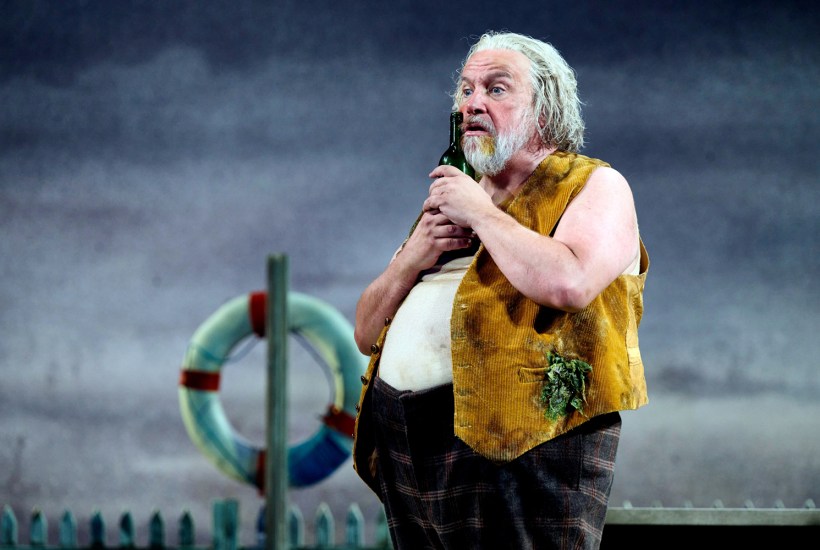
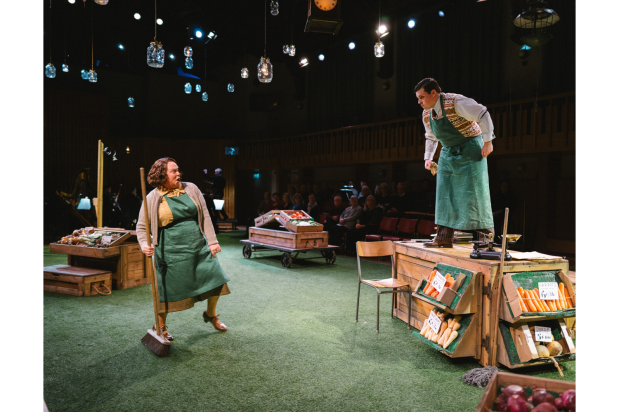
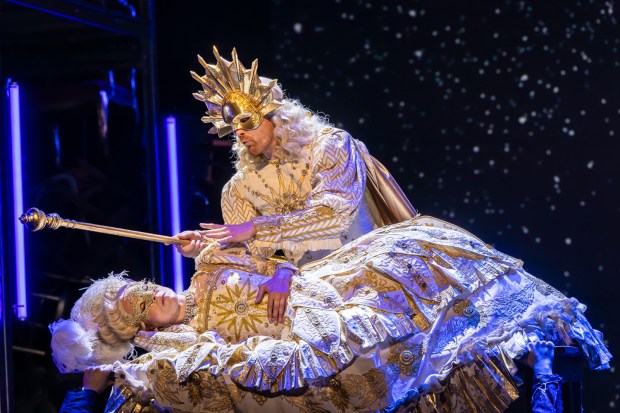
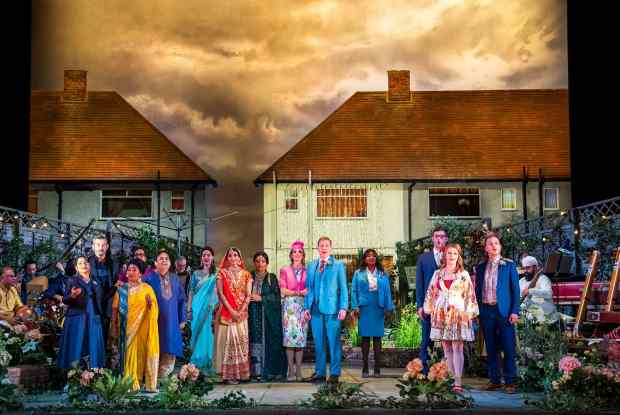
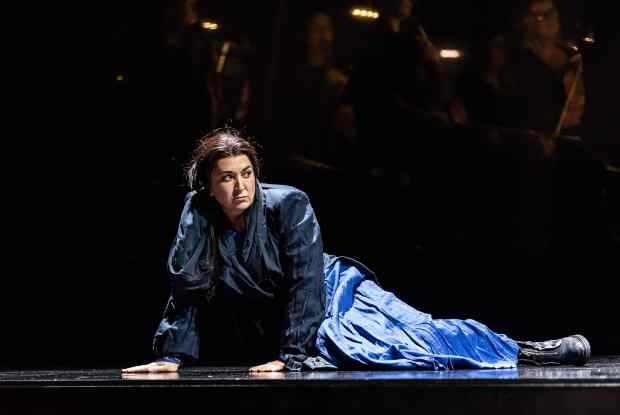
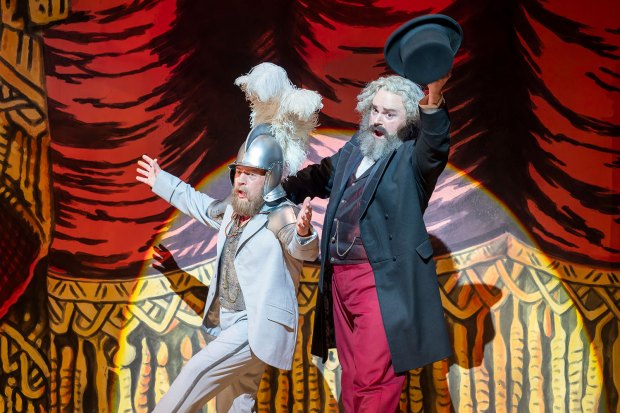







Comments
Don't miss out
Join the conversation with other Spectator Australia readers. Subscribe to leave a comment.
SUBSCRIBEAlready a subscriber? Log in